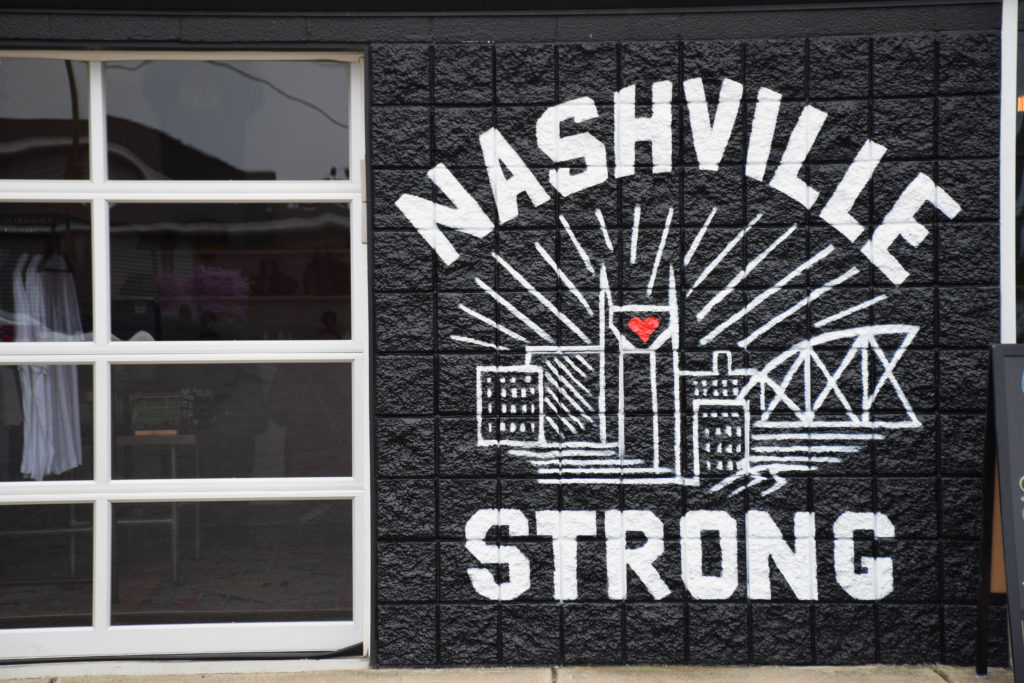
Inflation, gentrification and the great resignation are all taking a toll on Nashville’s economy as the city rebounds from the COVID-19 pandemic. Business and nonprofit leaders dissected the greatest challenges facing the local economy during a panel discussion with the Federal Reserve on Monday.
Nashville has bounced back from COVID more quickly than many other cities, because so many people are moving to the area — perhaps as many as 30,000 every year. But the conversation painted a picture of a city that is benefitting from rapid growth for some while struggling to spread around the prosperity.
Here are a few of the key topics they discussed:
Inflation
Prices have been climbing in the U.S. for months. The cost of gas reached an all-time high last month, according to AAA. That trend is taking a toll on local businesses.
Pizza chain Slim & Husky’s just upped its prices to keep pace with the rising cost of supplies.
During the panel, co-founder E.J. Reed said he understands why so many restaurants go out of business.
 Rachel Iacovone WPLN News
Rachel Iacovone WPLN NewsSlim & Husky’s sells artisanal pizzas with gourmet ingredients, like heirloom tomatoes and fresh mozzarella.
“We all know you can’t run a business if your prices are up and down all the time to your customer,” he said. “But that’s a lot of people’s business model when we are having to pay for items that prices are going up and down.”
When the prices go up, Reed said, people have to decide between filling up their cars with gas or buying their Slim & Husky’s pizza.
The North Nashville-based chain is known for its artisanal pies, made with locally sourced ingredients. But Reed said the business is struggling to figure out how they’ll be able to make the same high-quality food as their costs continue to increase. He said it’s nearly impossible.
“How do we stay competitive? How do we offer salaries? How do we make these choices and decisions when the cost of cheese is going up, when the cost of corrugated boxes are rising every day?” he said. “Some of those critical decisions might mean we have to figure out how to readjust our staff on a daily basis.”
Slim & Husky’s is considering using technology to manage some tasks that could put employees out work, in order to cut costs. That’s something Reed said he hopes to avoid, because he knows his staff in Nashville, Memphis, Atlanta and Sacramento count on him for their livelihoods.
Housing
Housing prices are also skyrocketing in Nashville. According to Greater Nashville Realtors, the median rose more than 20% last year — from $339,000 to $414,900 — and that upward trend is expected to continue in 2022.
 Tony Gonzalez WPLN News
Tony Gonzalez WPLN NewsThe streets of Nashville are filled with new homes. But for many, the price is too steep.
Janet Miller of the real estate company Colliers Nashville called it a “frenzy.” She said it’s driven largely by investment buyers as far away as New York, Los Angeles and Dubai who want to get in on the hot housing market.
“Your average first-time home buyer is just heartbroken 20 times in this town, because they make 20 offers and somebody walks in who’s got more wherewithal, and they’re throwing down an extra $30,000 and no inspection and all cash,” Miller said.
Construction costs have also increased, which Miller said has only exacerbated the issue. She thinks inflation is the most urgent issue facing the local economy.
“It is all connected,” she said. “That is the one that’s impacting every single human being.”
Staffing shortages
As people get priced out of the city, some panelists worried that could also intensify the staffing shortages facing many businesses. A growing number of Nashvillians are moving to suburbs and exurbs where the cost of living is cheaper — what one panelist referred to as a “tsunami of displacement.”
Joshua Mundy, who runs a school that aims to train a diverse workforce for the tech industry, says businesses ought to pay enough for their employees to afford living in neighborhoods like downtown and 12 South. He thinks it will be especially difficult for hotels and restaurants to recruit and retain employees, if they can only afford to live 45 miles away.
“Would you drive 45 miles for $12 an hour? Would you drive that far? It doesn’t make sense,” Mundy said. “We have to make sure that everybody is getting investment and also making sure that they can get the salaries that they need so that they can really thrive in this new Nashville.”

